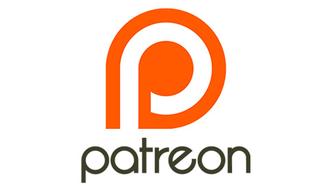One of the best ways to give yourself an edge is to self-educate yourself. That’s how you make your fortune.
Self-educating yourself for at least two hours each day will allow you to become the leader of your niche within five years.
But we’re about massive results, so instead of two hours each day, we should aim for four hours.
Double the amount of hours and you’ll double your results. That’s the law of proportions. While four hours each day to self-education seems like a big challenge, it’s very possible. This blog post will show you how.
Establish An Educational Wake Up Ritual
Upon waking up, I read the same eight books every day. It used to be five, but since I had no problem going through five, I upped my total to eight.
I’ll read a small portion of each book. As I read books focused on self development and success, I feed my mind right to start the day. This wake up ritual takes about 30 minutes.
Three and a half hours to go.
Listen To Audiobooks During All Commutes
I commute back and forth from school for 40 minutes each day. Instead of listening to music during this time, I’ll listen to an audiobook.
We have many opportunities like the daily commute that can be used productively. We can listen to audiobooks during this time or even dictate new content.
Listening to audiobooks is as easy as joining Audible and downloading two free audiobooks every month for a monthly fee. Audiobooks are also significantly discounted for members.
Learn During Content Creation
On Tuesdays and Wednesdays, I don’t worry about hitting four hours of self-education each day. On those days, it’s guaranteed. I can interview as many as five people on each of those days depending on how many people book interviews on those days.
With interviews averaging 45 minutes lately, that’s a total of 3 hours and 45 minutes of interviews. During this time, I get to ask my questions and get answers. I’m the client and my guest is the consultant.
I’ve got questions I would ask that I know my audience would also want to ask if they had the chance.
If you don’t have a podcast, starting one should be your #1 priority. You get to create new content for your audience and learn from experts at the same time.
I’ve interviewed as many as 21 people in one week (I was also hosting a summit during this stretch). All of that time is content creation and self-education wrapped into one.
Making Breakthrough Success a weekday podcast instead of a weekly podcast has made a big difference for my knowledge. I may make it a daily podcast if I still see a drop in downloads over the weekends (I only made it a weekday podcast because I assumed people would use the weekends to catch up what they missed).
If you don’t have a podcast, you can still learn as you create content. The simple act of creating content forces you to dig deep into your brain and recall things you already knew. This creates muscle memory.
For some of your pieces of content, you may also need to conduct research. This research will force you to consume more content in your niche. As you consume more content, your knowledge will expand.
Get An Accountability Partner
You’ll almost always do better on an exam if you have a study partner. Even if you got paired up with a study partner who didn’t know much, you would teach that person, and that act would sharpen your knowledge.
In a similar way, you need an accountability partner to expand your knowledge. You can listen to audiobooks with your friends. If that doesn’t work, you can have a weekly meeting with a friend where you discuss the book that both of you were supposed to read.
I advise having 1-3 solid accountability partners to expand your knowledge. That way, you can give them your attention. If you have 10 accountability partners, then it’s harder to keep track and acknowledge all of them.
Hire A Coach
If you’re not good at something you want to master, you have two choices. You can either toil away and become a master after many years…OR you could hire a coach who can speed you along the journey.
The only coaches worth hiring are the ones who are at the level of success you aspire to achieve. Then you can listen to their advice and know that it will help you get to where you want to be.
You can also consider your coach as an accountability partner. The difference is that a coach gives you knowledge instead of discussing a book the two of you were supposed to read.
If you have the financial means to do so, then there’s no reason to stop at one coach. You can hire multiple coaches who will help you get better at multiple skills that you need to master.
Hire the right coach, and your calls with that coach will give you more knowledge than anything else discussed in this blog post. While content can boost your knowledge, it isn’t specifically geared towards you.
Coaches can specifically gear their advice towards you. They know who you are, what worked, what hasn’t worked, and that helps them give you better advice.
“I see on your website that you can be using this plugin to double your conversion rates. You should also include a pop-up that matches your site’s blue background.”
You can’t get that direct level of advice from a piece of content. Only a coach can do that.
In Conclusion
If you want to become more successful, spend more time self-educating yourself. If you can level yourself up from 0 minutes to 30 minutes every day, that’s a big stride.
Work your way to an hour a day and keep going on your way to four hours per day. You can self-educate yourself during commutes and similar settings where you can’t take actions to grow your brand anyway.
Self-educating will also give you the knowledge to grow your brand faster with a smaller time investment. Time is the only thing we can’t get back.
What were your thoughts on these self-education tactics? Do you have any tactics you want to share? Do you have a question for me? Sound off in the comments section below.

















